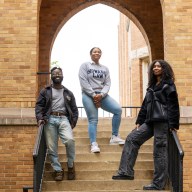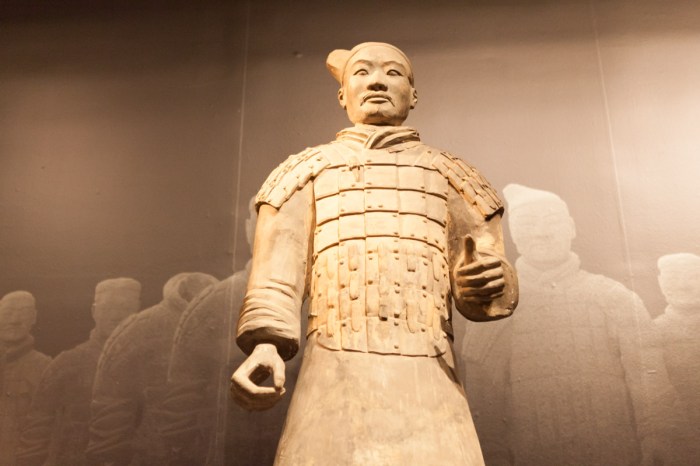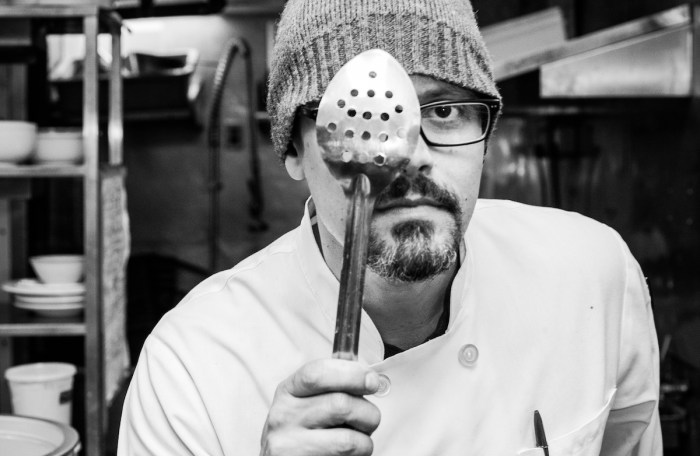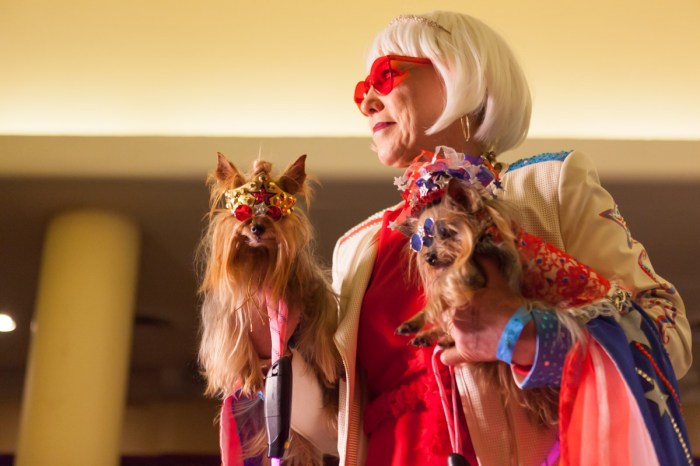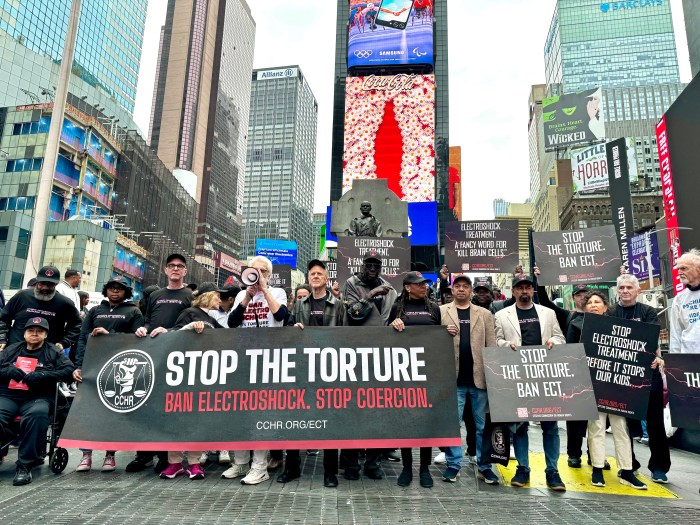Daniel Radcliffe has been acting since age 10, so playing an FBI agent who goes undercover among white supremacists wasn’t the hard part of his new movie, “Imperium.”
“Driving on camera,” says the 27-year-old star, who had to do some hectic maneuvering in a pickup truck for the film. “I was more comfortable doing the gun stuff than driving. And I have spent no time around guns, but I felt like I was more likely to kill someone in a car. “I passed my driving test a couple years ago specifically so I could drive on films because I was getting into situations where we were getting doubles for me to drive and closing off roads, so it was becoming too costly.” “Imperium” is based on a real-life domestic terrorist plot foiled by former FBI agent Mike German, played by the “Harry Potter” alum. We talked to Radcliffe and the film’s screenwriter and director, Daniel Ragussis, about how racism thrives and swastika cupcakes. The ideologies of “Imperium” seem so dated, but the past few months have been a rude awakening to how common they still are.
Ragussis:I was really not aware the degree to which these ideologies and groups are such an incredibly prevalent thing in our society. Mike would make the point, quite consistently, that 50 years ago, these beliefs were absolutely mainstream and the whole idea of civil rights and universal suffrage and tolerance are the modern idiosyncratic thing. While we’ve made tremendous progress it’s important for us to be vigilant, it’s important to realize these groups still exist. We don’t talk about them a lot, but they’re much more widespread than we realize as even just a few clicks on the Internet will show you. As part of the role, you had to say some very ugly words.
Radcliffe:I didn’t have trouble saying them because it was my job; it wasn’t nice to say them, it definitely felt shitty. I went up to the actors I was saying them at in between pretty much every take and said “God, I’m so sorry.” Everyone understands it’s acting, but those words do have power, and I was shouting them in a very public space. “Imperium” is very much about the power of words, specifically the books used to indoctrinate young men into the white supremacist cause. Is there a book that’s been personally significant to you? Radcliffe:William Goldman’s “Adventures in the Screen Trade,” I remember reading it when I was 12 and I was obviously in the [“Harry Potter”] films by then, and there was this line, “All stars fade, only actors last,” and I’m paraphrasing there, but I realized if I really like this world, being famous isn’t enough; it’ll get you 10 great years, but to have a career you’ve gotta be something else. Ragussis:“War and Peace,” which is pretty much my favorite book. It deals with a broad historical context, but the message of the book is that the most essential thing in human relations is love. It paints such an incredibly wide canvas but has such a simple and direct message, that to me is hugely powerful. You tend toward projects with an element of magical realism, like “Swiss Army Man.” Are you drawn to that, and what appealed to you about this film?
Radcliffe: I am drawn to magical realism, it’s a lot of what I read – my favorite book ever is “The Master and Margarita.” One of the things I love about [the genre] is anything can happen if you can justify it well enough. What drew me to [“Imperium”] is it was a page-turner, first and foremost, it was a really good thriller. It had a lot to say, and it was very authentic in how it portrayed this world. I suppose that’s what I’m interested in: As an audience member, I want to find out about a world that I don’t know. The books that I read have the same quality: You’re in that world, and exploring it is what’s fun about it, and that becomes uninteresting to me when you’re watching a Hollywoodized bullshit version of something, whereas with this it felt like a really authentic representation of what being undercover and that life is like, and that was really exciting to me. The white supremacists do some terrible things in this movie, but they’re also shown living totally normal lives.
Ragussis:No man is a villain in his own heart. The most interesting, compelling bad guys are always the ones who are humanized. What’s the interest in a character where you can’t understand the psychological mechanism? So just on a very broad level, that’s always what draws me to characters in films that I watch, it’s the kind of characters hopefully I would like to create. But then specifically it was very important for this movie because one of the complex and important things we have to hold in our head is that people are capable of espousing ideologies that are horrific but are still human beings and love their families and make jokes and enjoy a good meal. Radcliffe:If you go into [white supremacist] message boards, there are the political posts but the hilarious stuff is the recipes posts.
Ragussis:One of the things that characterizes these movements is their attempts to find ideological purity, and so one of the things that members want is to enter a community where they can be free of corrupting influences, which can make its way into something as innocuous as a recipe exchange. The swastika cupcakes served at the cookout in the film were a nice touch.
Ragussis:That was something I saw once, that was real.
Radcliffe:I took them home. They were red velvet and cream cheese!
Ragussis:Someone wrote that sometimes the film goes too far with unbelievable things like with the swastika cupcakes. I saw that on video, all these things are real and if you think about it, it only appears absurd to us because the symbol is so inflammatory, but if you consider that to be a cultural landmark for you of course you would put it on your cupcakes, you’d be celebrating it.
Daniel Radcliffe talks swastika cupcakes and the normal side of evil in ‘Imperium’
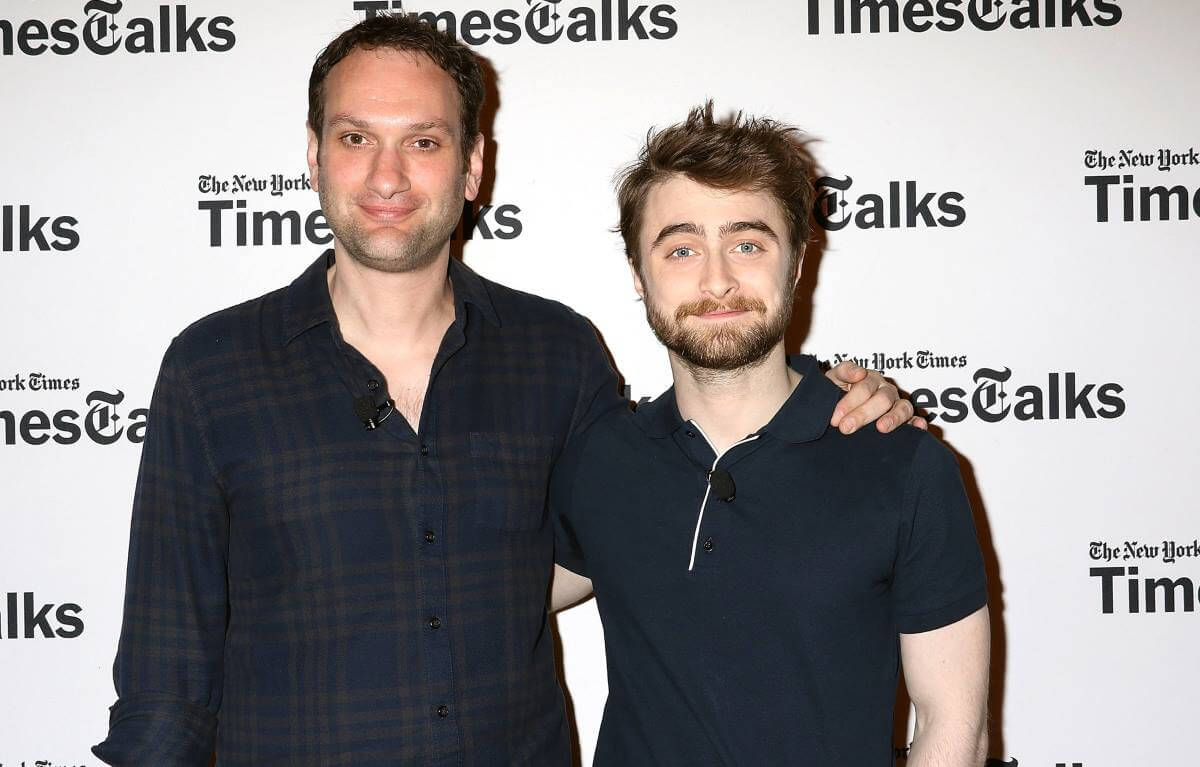
Getty Images






